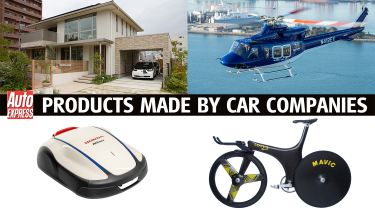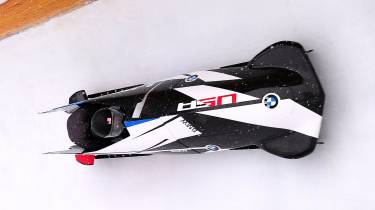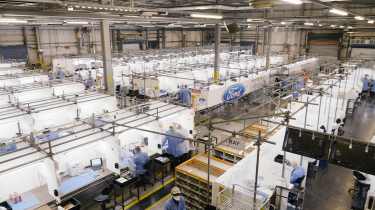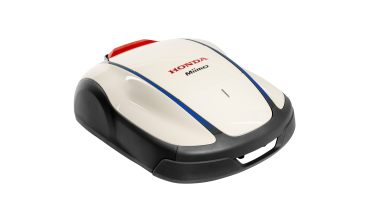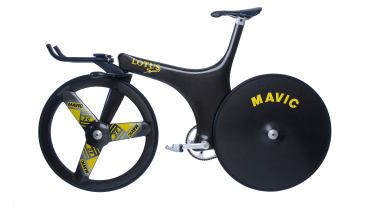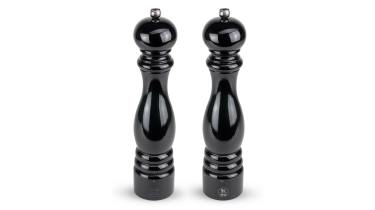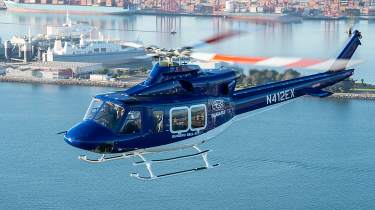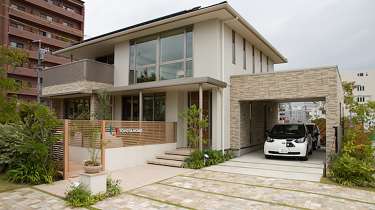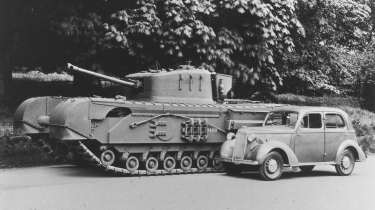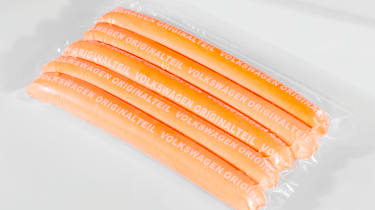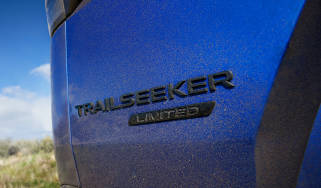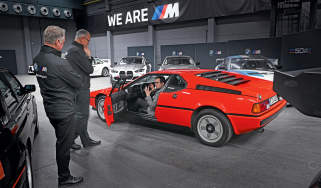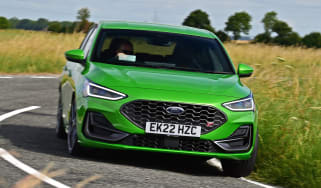10 surprising things made by car companies, that aren't cars
The world’s biggest auto manufacturers have many strings to their bows...
Every week we bring you news and reviews of all the latest models from established brands and those new to the market. But many of these companies make far more than just cars, producing everything from aircraft to sausages. We take a look at some of the diverse products these automotive firms also manufacture.
BMW - Bobsleigh
Car makers are no strangers to success in the motorsport arena, but eyebrows were raised when BMW announced in 2012 that it would use its engineering and design prowess to produce a two-man bobsled for the US Olympic team at the 2014 Winter Olympics in Sochi, Russia. In hindsight, perhaps its involvement wasn’t so much of a surprise after all.
Using lessons learned from its EfficientDynamics tech, BMW incorporated lightweight materials and optimised aerodynamics to produce a new design for the USA Bobsled and Skeleton Federation. The tie-up proved an instant success, with Team USA picking up three medals – a silver and bronze in the women’s event, and bronze in the men’s (later upgraded to silver because of Russian doping offences).
Ford - Ventilators
The Covid-19 pandemic provided a great opportunity for car companies to put their manufacturing expertise to good use at a time of international crisis. And Ford was one of many brands that stepped up to the plate, on both sides of the pond.
In the UK, it took just three weeks to create a production line for ventilators that would be used by the National Health Service, instead of the 12 months it might have taken normally. The Dagenham facility made component boxes and display screens for fully assembled units. And in Michigan, Ford teamed up with GE Healthcare to mass produce a ventilator designed by Airon Corporation as demand soared.
Honda - Autonomous Lawnmowers
Honda is another huge Japanese concern with many diverse interests, including a vast array of mobility solutions – for land, sea and air – and power products. From motorcycles to business jets to outboard motors for boats, the firm has all areas covered.
But arguably one of its most satisfying offerings is its line-up of robotic lawnmowers, which provide welcome relief for those of us who find maintaining the garden a particularly tiresome task. The latest Miimo range of mowers uses advanced navigation tech, connectivity and sensors to glide across lawns, effortlessly keeping grass in trim, while owners need do no more than control operations from their phone.
Lotus - Bicycles
The Norfolk company doesn’t just excel on four wheels. It also has serious pedigree on two, where its Lotus Engineering division has achieved phenomenal sporting success with performance bicycles. As with its classic sports cars, much of the designers’ focus has been on reducing weight, using advanced materials, and efficient aerodynamics.
Arguably its most successful execution was the Type 108, a revolutionary pursuit bike that showcased a pioneering monocoque design, carbon-composite construction and an aerofoil cross section. The 108 helped Britain’s Chris Boardman achieve a memorable gold medal on the track at the 1992 Olympics, and Lotus will be hoping for further glory in Paris this year, having agreed a deal in 2023 with British Cycling to develop a new track bike for Team GB riders.
Nio - Smartphones
With connectivity already such a key element for cars – and likely to become even more so in the next decade – smartphone compatibility is set to be ever-more integral to the vehicle ownership experience. So, in September last year, hi-tech Chinese electric car maker NIO took the inevitable step of producing its first smartphone.
Designed specifically for users of NIO cars, the NIO Phone is intended to facilitate easier operation of vehicles, offering functionality that includes opening doors, adjusting seats, enabling voice control and operation of in-car apps. And yes, you can make calls, too. The NIO Phone may well prove to be a trailblazer, with other car makers – including Polestar – eyeing similar solutions.
Peugeot - Peppermills
While Peugeot is synonymous with cars in the UK, there are other countries in which it is arguably more famous for its famous pepper and salt mills. After all, that’s where it all started for the French manufacturer more than 180 years ago
It was way back in 1840 – some 49 years before Peugeot made its first, steam-powered vehicle – that the company designed a coffee grinder that paved the way for production of a range of mills used to grind beans, pepper, salt flower and even sugar.
To this day, pepper mills are still manufactured in the Peugeot factory in Doubs, France, and are then exported to more than 80 countries around the world to take pride of place on dinner tables and in upmarket restaurants.
Subaru - Helicopters
Traditional forms of air transportation are the domain of Subaru, which forms part of the larger Subaru Corporation, previously known as Fuji Heavy Industries. Its aerospace division is a defence contractor for the Japanese government, making Boeing craft under licence, while it also produces helicopters in tandem with Texas company Bell Textron, which it has partnered with since 1960.
Its latest chopper, the Subaru Bell 412 PX, is becoming a familiar sight in Japan, where some of the country’s prefectures are putting it to use for emergency medical operations, aerial firefighting, search-and-rescue operations and surveillance.
Toyota - Eco Houses
A car is often considered the second biggest outlay after our homes – but would you buy both from the same source? Those living in Japan have the chance to do so, because Toyota takes advantage of its manufacturing experience to offer a range of housing options alongside a vast vehicle line-up.
The Toyota Home website shows a wide range of options, with the most common Sincé series of dwellings essentially a series of modular pre-fabs built around a rigid steel-frame structure. But while around 10 million Toyota and Lexus vehicles were shipped globally in 2023, annual Toyota house sales typically number just a few thousand each year.
Vauxhall - Tanks
Many car makers have assisted in military efforts, and here in Britain one of the most famous interventions was Vauxhall’s production of the 38-ton A22 Infantry Tank, which subsequently became known as the Churchill, for World War II.
The government specifically requested Vauxhall make the tank, which featured a 350bhp, 21-litre, 12-cylinder engine that the company had previously worked on for an aborted Harland & Wolff design. Given the urgency demanded by the conflict, the Churchill itself went from design sketch to working prototype in just a year. Much of the testing was carried out at the Luton Hoo Estate, and the tank proved such a success that around 5,500 were produced before the end of the war.
Volkswagen - Sausages
Yes, sausages. The currywurst was once hailed as Volkswagen’s biggest-selling product, with around seven million being gobbled up at its peak. It’s been around since 1973 when it first started appearing in the company’s staff restaurants, before being made available in selected supermarkets.
And so beloved is the acclaimed spiced-pork sausage that it even has its own part number – 199 398 500. Indeed, such is the high regard for it in Germany, the former chancellor Gerhard Schröder felt compelled to intervene when VW removed currywurst from a canteen menu in 2021 as part of an effort to switch to meat-free options. “If I were still on the supervisory board of VW there would have been no such thing,” he posted on social media. “Currywurst with fries is one of the [staples] of the skilled worker in production.”
Which is your favourite non-car related product made by car manufacturers? Let us know in the comments...
Find a car with the experts
